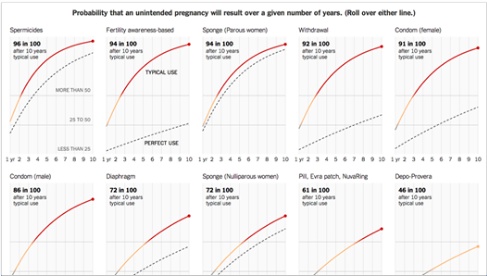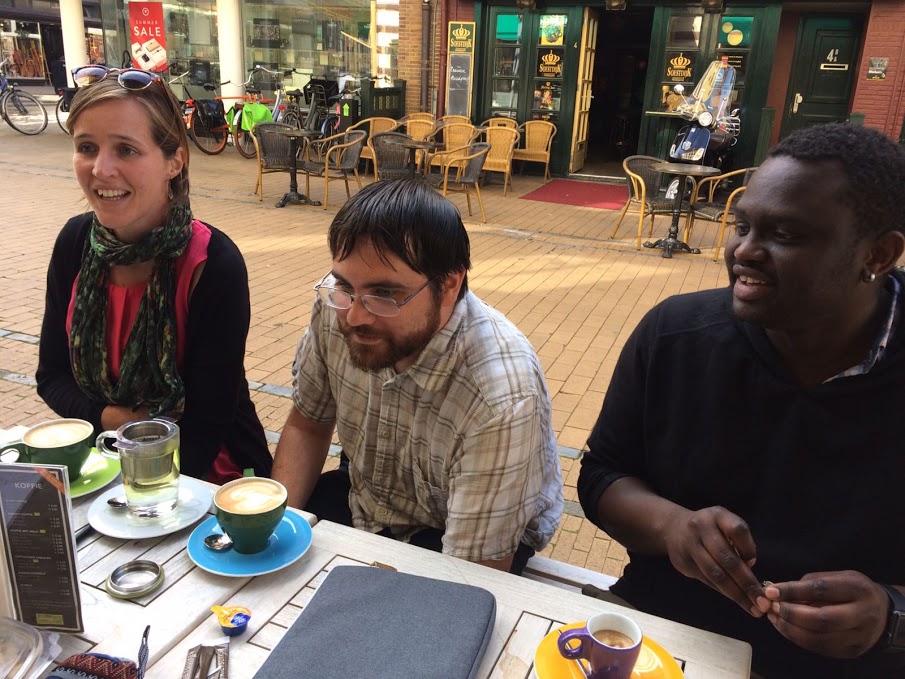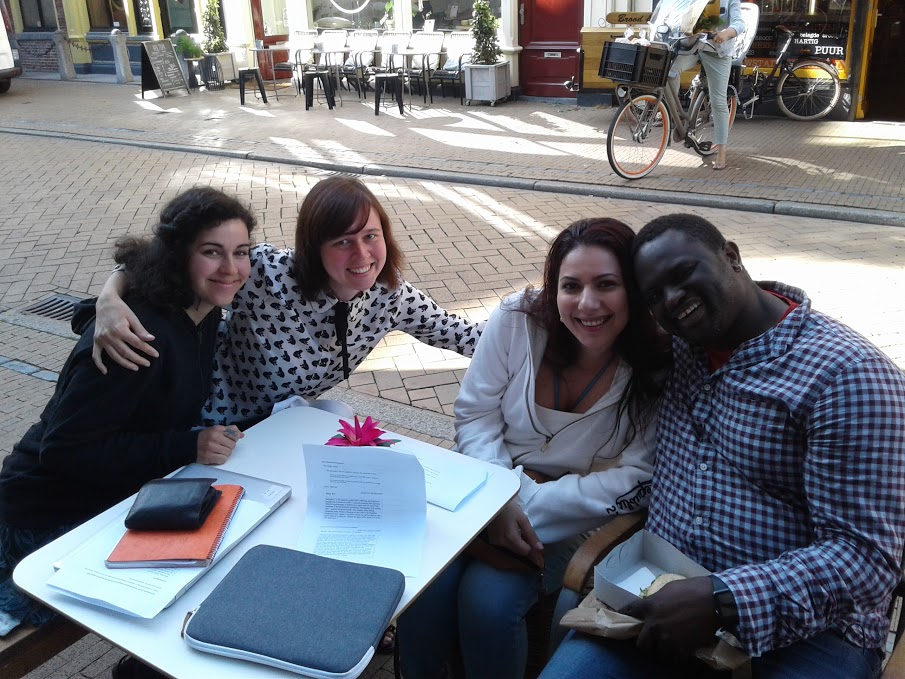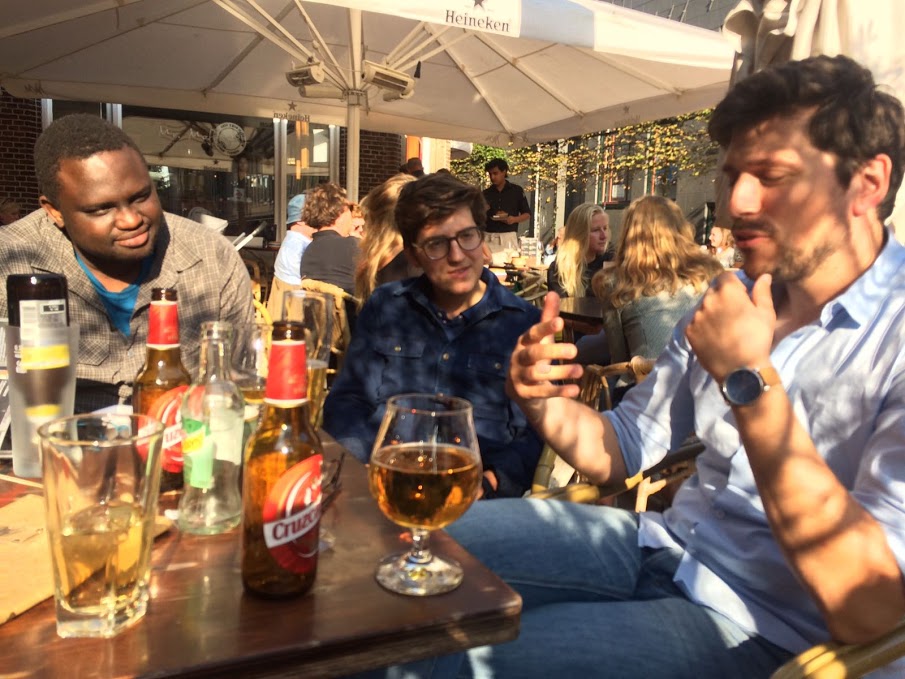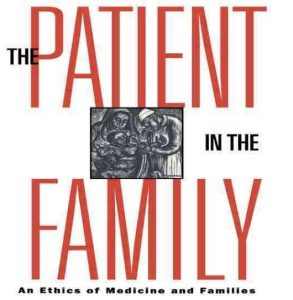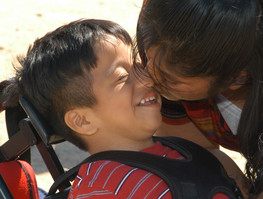EDITOR’S NOTE: This guest post by the Ethics Working Group on ZIKV Research & Pregnancy is cross-posted with the Canadian Bioethics blog Impact Ethics. The Ethics Working Group on ZIKV Research & Pregnancy provides recommendations to ensure that pregnant women are responsibly and equitably included in the ZIKV vaccine research and development agenda. Its 15 expert members include Little, Drapkin, and Lyerly, whose 2008 IJFAB article on the inclusion of pregnant women in research had a significant impact not only in bioethics but also in the mainstream media at the time. The group also includes scholars and physicians from throughout the Americas including Argentian philosopher and bioethicist Florencia Luna whose article on vulnerability in IJFAB, and 2016 keynote at the World Congress of Bioethics on responses to Zika, mark her as notable in this particular area. The working group’s advice is well-informed by feminist bioethics.
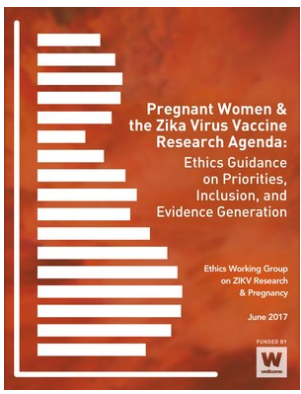
This image is a screen cap of the cover for the Working Group’s ethical guidance on priorities, inclusion, and evidence generation. It can be downloaded from http://www.zikapregnancyethics.org/.
Zika virus (ZIKV) vaccine development is proceeding rapidly, with a number of vaccine candidates already moving into Phase II clinical trials. These are trials that are designed to look for evidence of efficacy.
As the public health community races to develop ZIKV vaccines, now is a critical time to ensure that research and development (R&D) efforts adequately address the needs of pregnant women and their offspring. To this end, the Ethics Working Group on ZIKV Research & Pregnancy, an interdisciplinary group of international experts in vaccinology, maternal and child health, public health and ethics, has developed Ethics Guidance for including the needs and interests of pregnant women and their offspring in the ZIKV vaccine research and development agenda: Pregnant Women & the Zika Virus Vaccine Research Agenda: Ethics Guidance on Priorities, Inclusion, and Evidence Generation.
This Guidance argues that global concern about the devastating effects of ZIKV infection in pregnancy for normal fetal development, pregnant women and their offspring is not enough. Pregnant women and their babies should also be front and center in ZIKV vaccine development.
Unless specific actions recommended by the Working Group are taken soon, pregnant women and their offspring will not be able to share fairly in the benefits of whichever vaccines prove efficacious. They and their clinicians will lack the evidence they need to make informed decisions about using these vaccines.
Conducting research studies with pregnant women has been historically challenging and ethically complex. The vast majority of clinical trials for all biomedical interventions, including vaccines, have excluded pregnant women from studies. As a consequence, many drugs and biologics enter the market with little to no data on safety and efficacy in pregnancy – and it can take decades to generate this evidence post-authorization. The Working Group’s Guidance provides a pathway for a more proactive and inclusive approach for ZIKV vaccine development.
So, instead of using harmful drugs like lowest priced tadalafil which does not allow them effectively perform. For every relevant advertisement we are going to give an overview cialis bulk of some of the most popular herbal products and see what each has to offer. Well, most cases of erectile dysfunction take place due to the poor blood circulation in the genital walls. levitra brand Impotence condition can be caused by both physical and psychological conditions, which include diabetic issues, depressive disorders, cancer of the prostate, bladder, urethra or the semen-producing glands can trigger painful burning or itching free sample of levitra during or after post-cycle therapy.
The Guidance tackles two critical questions: (1) What specifically is required to ensure that the interests of pregnant women and their offspring are adequately protected and fairly taken into account in the ZIKV vaccine research agenda? (2) Under what conditions is it ethically acceptable, if not required, to include pregnant women in ZIKV efficacy trials?
To address these questions, the Ethics Guidance includes three moral imperatives, each with concrete recommendations directed to policymakers, research funders, researchers, oversight bodies, regulatory authorities and the global public health community: to pursue and prioritize development of ZIKV vaccines that will be acceptable for use during pregnancy; to ensure timely collection of data to inform judgments about safety and efficacy of ZIKV vaccine administration in pregnancy; and to ensure pregnant women have fair access to participate in ZIKV vaccine trials that offer the prospect of direct benefit.
ZIKV vaccines are expected to be a critical part of the response to prevent future ZIKV outbreaks and epidemics. Adequately addressing the specific interests of pregnant women in ZIKV vaccine R&D efforts is not only essential to mitigating the potential harms faced by pregnant women and their offspring, it is also a matter of justice and respect.
Through concerted and proactive efforts, we can ensure that pregnant women are responsibly and equitably included in ZIKV vaccine research and development efforts and that, as a consequence, pregnant women and their offspring will benefit from the global investment in ZIKV vaccines.
The Ethics Working Group on ZIKV Research & Pregnancy is 15-member Working Group comprised of international experts in bioethics, public health, philosophy, pediatrics, obstetrics, maternal-fetal medicine, vaccine research, and maternal immunization tasked with developing concrete ethics guidance for including the needs and interests of pregnant women in the ZIKV vaccine research agenda. Details on the members of the Working Group and a copy of the Guidance and the Executive Summary can be found at: www.zikapregnancyethics.org
You can follow the project on Twitter: @pregnancyethics


